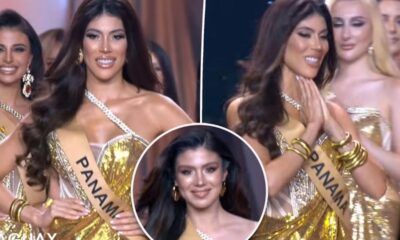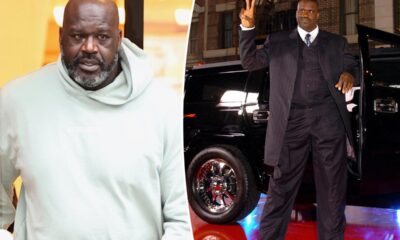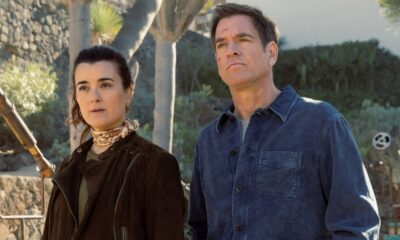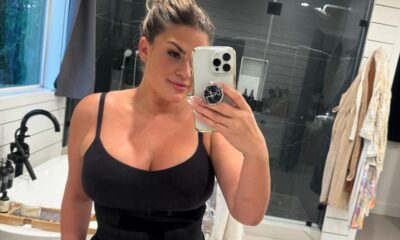Entertainment
Malala Opens Up Like Never Before About PTSD and Near-Death, Her Mom, an Emotional Return Home, Marriage and More
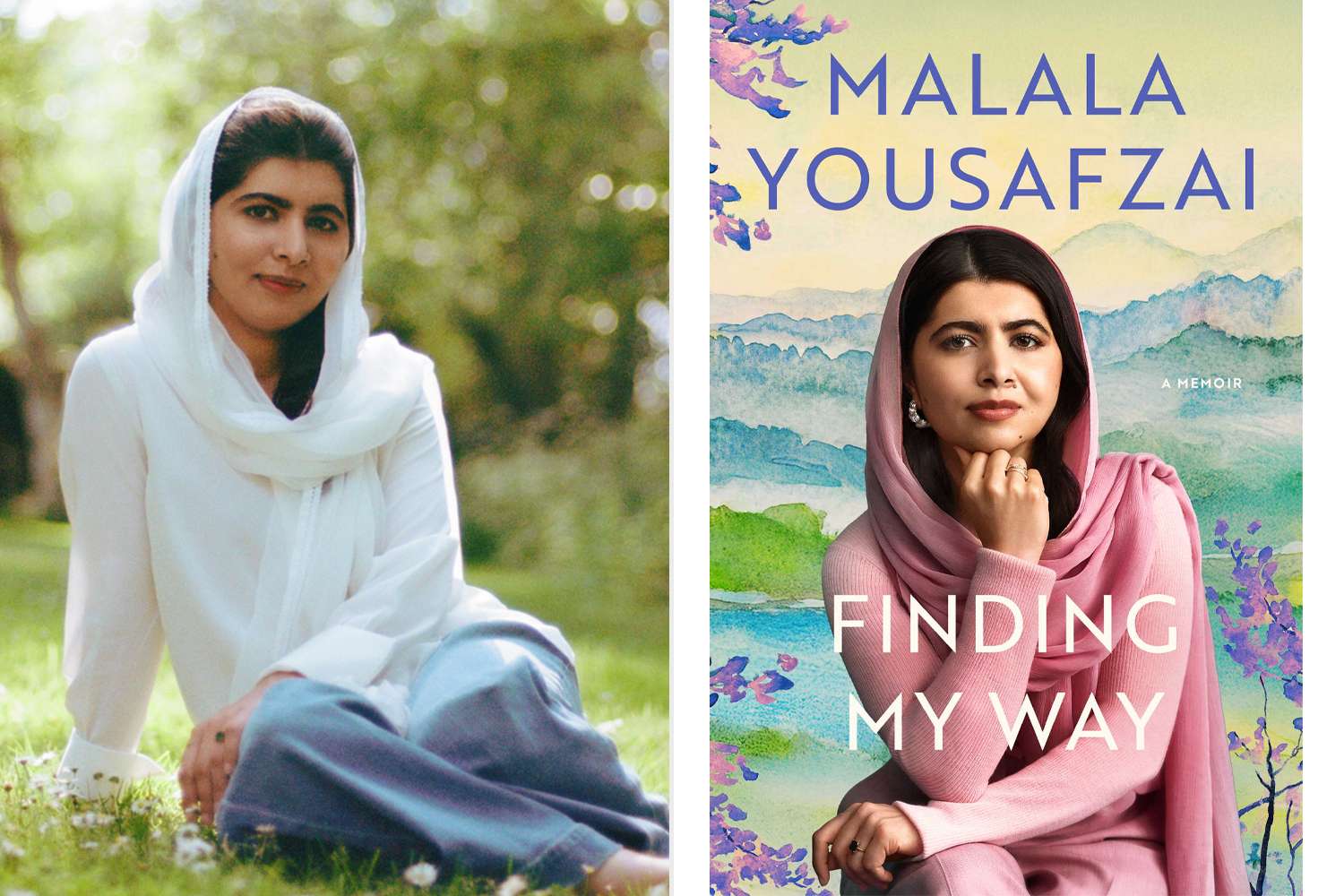
NEED TO KNOW
- Malala Yousafzai, the Nobel Peace Prize-winning girls’ education advocate, has a new memoir out, Finding My Way
- The book details how she has come of age on the world stage, including going to college and getting married
- “I think the most important thing for me is that it is the true reflection of how I feel and what my thoughts are,” she tells PEOPLE of her writing process
As she worked on her new memoir, Malala Yousafzai was ready for some of those closest to her to want to weigh in.
What mattered to the celebrated young activist was how she felt, though.
“I knew that my parents would have a lot of opinions on what I shared, maybe my mom, because she might be mad at me for opening up a bit,” Yousafzai, 28, tells PEOPLE. “But I think the most important thing for me is that it is the true reflection of how I feel and what my thoughts are.”
The new book, Finding My Way, published this week, chronicles how the youngest-ever Nobel Peace Prize winner came of age after being thrust into the global spotlight when she was nearly assassinated by the Taliban at age 15, in 2012.
Finding My Way reflects her pursuit of a normal life at Oxford University, where she developed lasting friendships with people who saw her as a person and not a public figure, something she so desperately wanted; the difficulties she faced academically while traveling the world as an education advocate; how she experienced panic attacks, anxiety and sleeplessness in the years after she was shot in the head; and how that experience led her to seek mental health treatment for post-traumatic stress disorder.
The memoir also traces her romance with husband Asser Malik, whom she married in 2021.
“This time, I want to show more of myself,” she says.
Here are some key moments from Finding My Way, out now.
Navigating Backlash from Her Marriage Comments
In July 2021, Yousafzai appeared on the cover of British Vogue.
That spring, when the author of the article, Sirin Kale, asked whether she had met a romantic partner, Yousafzai — who had been secretly dating her now-husband — felt conflicted about how to answer.
If she said no, she’d be lying; but if she said yes, it would spur controversy in parts of her native Pakistan, where so-called unions for love are frowned upon, she writes in her memoir.
She responded to Kale that she hoped to find a person who would understand and respect her. Sensing how uncomfortable Yousafzai was by the question, Kale quickly changed the topic.
But, as she recounts in Finding My Way, Yousafzai wanted to clarify her views on love.
“I still don’t understand why people have to get married,” she told Kale. “If you want to have a person in your life, why do you have to sign marriage papers, why can’t it just be a partnership?”
Yousafzai did not intend for her remarks to be a broadside on the institution of marriage. But that was how some people viewed them: The day after the Vogue article published online, she woke up to find #ShameOnMalala trending in Pakistan, with some calling her comments “lewd” and “unIslamic,” she recounts in her memoir.
The criticism even included attacks on her appearance and calls for her to be burned, raped or strangled.
Her father, Ziauddin, who, prior to the thousands of critical posts, had proudly shared the article on his own Twitter account, pressured her to make a statement to clarify her comments, while her mother, Toor Pekai, told her she wished she’d never opened her mouth, she writes.
In the end, Malik, 35 — who, by then, had met her parents — assured them that the backlash was overblown and that there was nothing wrong with the interview or with having an open discussion on marriage.
He also told them that it had not upset his own mother (which was of concern to Yousafzai’s) and that he would always support their only daughter.
Her Jeans Caused a Stir
A recurring theme of Finding My Way is how Yousafzai has had to shoulder the expectations of both the Pakistani and international communities as a reflection of her high profile and outspokenness on social issues.
Incidents like one early in her college studies highlighted the scrutiny she has faced for even simple choices and how, from a young age, other people have tried defined her after she was attacked.
During her first year at Oxford, she wore jeans, a T-shirt, a bomber jacket and her headscarf to a rowing practice. Such choices were not uncommon for the time — but someone snapped a photo of her walking back to her dorm and sent it to a popular Pakistani Facebook group.
Hundreds of people, most of them men, expressed shock that she wore jeans and not a shalwar kameez, a traditional South Asian outfit that includes loose fitting pants, a tent-like tunic and a headscarf.
Others questioned whether she had abandoned her Islamic faith.
“A few wrote that it was shameful that I had walked down the street on my own without a father or brother to monitor me,” which she found absurd, she writes in her book. “Because of jeans? I expected some sort of uproar about my college life, but not this soon, or over something so stupid.”
Her Views on Marriage Evolved
Yousafzai’s evolving views on marriage are another turning point in Finding My Way.
She writes how she had been turned off by the patriarchal history behind it and the sacrifices she felt it required of women, including in Pakistan, where Malik is also from.
But through many separate conversations — with Malik and close friends about their own relationships; and with her mother, about Yousafzai’s father — as well as reading authors like bell hooks and Chimamanda Adichie, she says she was convinced he would only add to her life and advocacy mission, not diminish it.
“I never thought I would get married. I didn’t want to get married.” she told PEOPLE in a recent joint interview with Malik. “That was a topic I was staying away from.”
In time, she says she learned, “If you find the right person and you and your partner have mutual understanding about how this is going to be a journey together, it can work out really well.”
Never miss a story — sign up for PEOPLE’s free daily newsletter to stay up-to-date on the best of what PEOPLE has to offer, from celebrity news to compelling human interest stories.
Scenes from Her Courtship
In her memoir, Yousafzai describes the early challenges and thrills of privately dating Malik, who met her in 2018, while she was in college.
“Asser’s arrival vanquished the dark clouds that hung over the prospect of my third term at Oxford, but it wasn’t exactly the carefree summer romance of rom-coms, as I worried a lot about getting caught,” she writes.
Detailing one outing, she writes that while taking a walk, she grabbed Malik’s hand and “pulled him close,” only to catch the eye of a nearby woman.
“[The woman] broke into a wide smile of recognition and pulled out her phone to take a picture. I ran behind a hedge to hide, alarming both Asser and my security team,” she writes.
Keeping their romance hidden from her parents at first also led to some inventive moments.
According to Finding My Way, Yousafzai once showed up to a date with Malik in a traditional shalwar kameez that met her mother’s approval. After they got to their table she excused herself for a minute, then changed into a sleeveless, form-fitting pink dress and heels.
“When I returned to the table, Asser sat up straight and his mouth broke into a smile I hadn’t seen before. He pulled out my chair and whispered, ‘You’re a sex bomb!’ in my ear,” she writes. “I hid my face behind my dinner napkin, both delighted and bashful.”
An Emotional Return to Pakistan
In keeping with the issue closest to her heart — education — Finding My Way details her emotional return this year to Shangla, her parents’ hometown in Pakistan.
Yousafzai, her father and Malik traveled there in March. She had spent every holiday there as a child, and it brought her great joy and fulfillment to be able to help open a girls school in the same area, she writes.
She told Malik about Shangla on their first date and said that she’d take him there one day.
“I could hardly believe that we were now here,” she writes in her book of their helicopter landing to see the school for the first time.
The school offers mental health services to students — a concept that Yousafzai says in her memoir “would have been considered absurd” when she was a kid.
“The work that I do for girls’ education, that’s what matters to me the most,” she told PEOPLE. “Me representing my culture and still being an advocate for girls can help them know that they can be empowered within their culture.”
‘Memories Were Still Lurking’
Yousafzai does not hold back about how daunting it was to be plagued by flashbacks from the shooting that upended her entire life and led her and her family to relocate to Birmingham, England.
She writes that she had always believed she had no memories of the shooting. But while studying at Oxford, she came to realize that was untrue.
After she smoked a bong on one occasion, the flashbacks began.
“I had seen it all, and the memories were still lurking in my brain, years later,” she writes in Finding My Way.
A close friend encouraged her to speak to a therapist. Yousafzai was skeptical at first, in part because it was taboo in Pakistan. But she eventually met with one.
At the end of their first meeting, she had hoped to be cured — as she saw it — or provided a prescription, but she writes that she learned that therapy would be a journey and not something for which there was an instant cure.
She grew to appreciate self-care as a means to maintain her mental and physical health as opposed to something silly or self-indulgent, she writes.
Introducing Readers to Her Mom
With her new memoir, Yousafzai is not only reintroducing herself, in a way, as an adult but also reintroducing her mother.
Yousafzai’s final year at Oxford was disrupted by the COVID-19 pandemic. Instead of returning to the university after her break, she had to live at home with her parents in Birmingham.
That time allowed her to get to better know Toor Pekai, with whom she had never enjoyed a warm relationship like she had with her dad, she writes. (When she got her first period, she told him because she’d always felt she could tell him anything.)
During the pandemic, she observed changes in her mother. They went on nightly evening strolls and, she writes, she came to view her mom as brave and generous, not just strict and judgmental.
Her relationship with her mom continues to evolve, for the better.
Read the full article here

-

 Music6 days ago
Music6 days agoHailey Bieber reignites Selena Gomez feud with savage diss
-
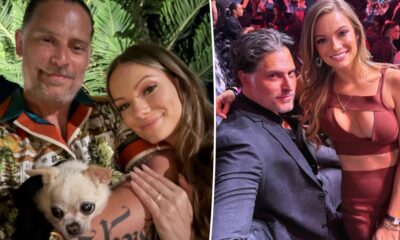
 Entertainment6 days ago
Entertainment6 days agoJoe Manganiello engaged to Caitlin O’Connor after two years of dating
-

 Entertainment7 days ago
Entertainment7 days agoAdam Brody and Leighton Meester Step Out Together on the Red Carpet for ‘Nobody Wants This’ Season 2 Premiere
-
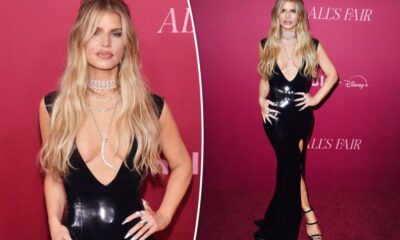
 Celebrity6 days ago
Celebrity6 days agoJessica Simpson wears black latex dress on ‘All’s Fair’ premiere red carpet
-
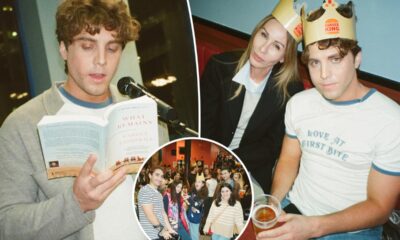
 Gossip6 days ago
Gossip6 days agoLukas Gage, Carole Radziwill read poetry at Burger King
-
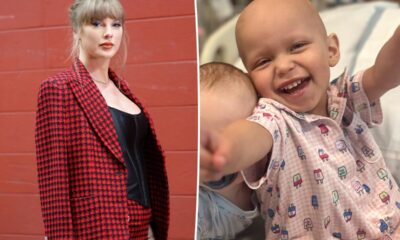
 Music6 days ago
Music6 days agoTaylor Swift donates $100K to a young female fan battling cancer
-

 Entertainment6 days ago
Entertainment6 days agoNHL Referee Sees His Life Flash Before His Eyes After He Mistakenly Awards Goal to Panthers: ‘Oh Sorry!’
-
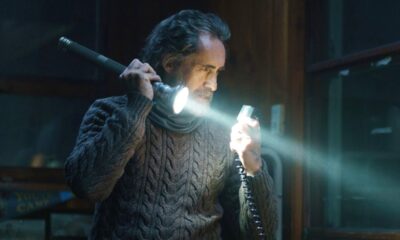
 News5 days ago
News5 days agoLike ‘Black Phone 2’? Then Watch These 3 Underrated Scary Movies Right Now
